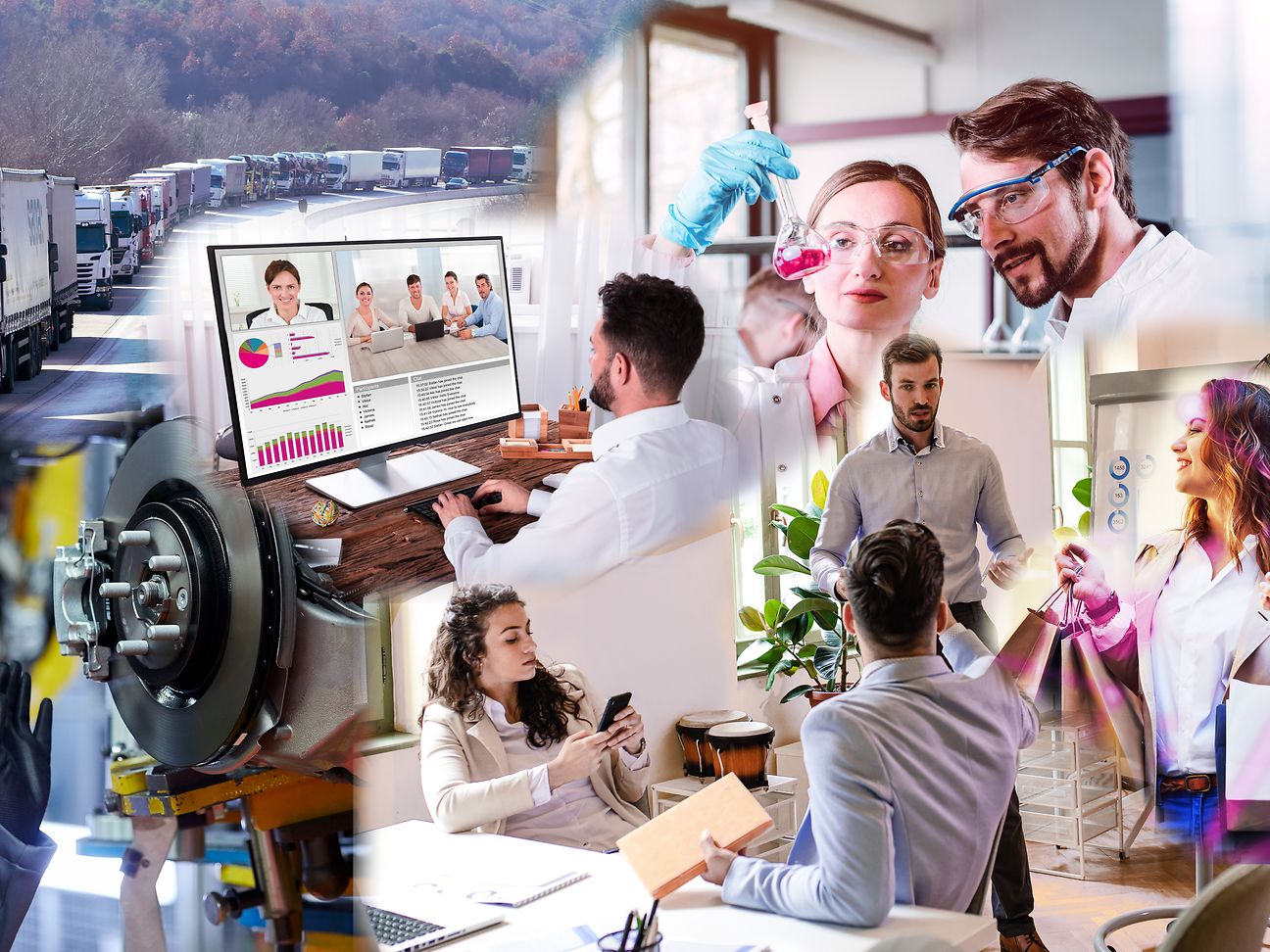Easy and simple: Blockchain
2) Deutsche Telekom uses blockchain technology and participates in public blockchain networks. Together with its subsidiary Deutsche Telekom MMS, it supports blockchains such as Celo, Polkadot or Q. After all, blockchain is one of the most important technologies of the future. It enables intelligent and secure applications and leads to a digital transformation for companies and society.
What is blockchain?
Blockchain is a distributed, public database and enables the Internet of Values. It stores transactions that can be viewed by any user. A blockchain gives people non-discriminatory access to a wide variety of services. Their entries are grouped into blocks. The term "chain" comes from the chain to which transactions are added in chronological order. Blockchain networks are being used more and more in business: In bankings as well as in insurance and healthcare, in trade or in logistics.
Why is the cloud a cornerstone of blockchain?
Deutsche Telekom provides infrastructure to operate and secure nodes (validators) in blockchain networks, for example. The Open Telekom Cloud plays an important role because the majority of all blockchain nodes run on cloud platforms. The Open Telekom Cloud meets the strictest security and compliance requirements. The cloud also enables the establishment and provision of digital identities (Self-Sovereign Identity, SSI) via the Internet. Many digital services require verified and secure digital credentials.
Example: Blockchain in the financial industry
Probably one of the best-known examples of the use of a blockchain is money transactions. It works like a cash book: if person A transfers money to person B, this information (data) is entered into a block. When a block is full, a new block is added. Each node (computer) in the network has a copy of the blockchain, so it knows the "balance" of each user and the entire history of the transaction. No banks are needed for payment transactions. Payments are made using cryptocurrency as a digital means of payment. For example, for money payments without a bank account in decentralized finance (DeFi).
Example: Blockchain in the economy
The food, pharmaceutical or automotive industries use blockchain applications, for example, to trace their supply chains. This allows fakes to be detected and combated more quickly. For example, pirated medicines endanger the health of patients. They also affect the profit and reputation of the pharmaceutical company.
Diary of an apple in the blockchain
Germany grows around 191,512 hectares of fruits and vegetables. Using a blockchain, consumers can digitally check the paths of their food without gaps: From growing to transport and sale to the consumer's table. Buyers of apples, for example, can use blockchain to find out about the farm, evidence of pesticides, harvest time, transporter, cold chain, delivery time or condition of the apples.

